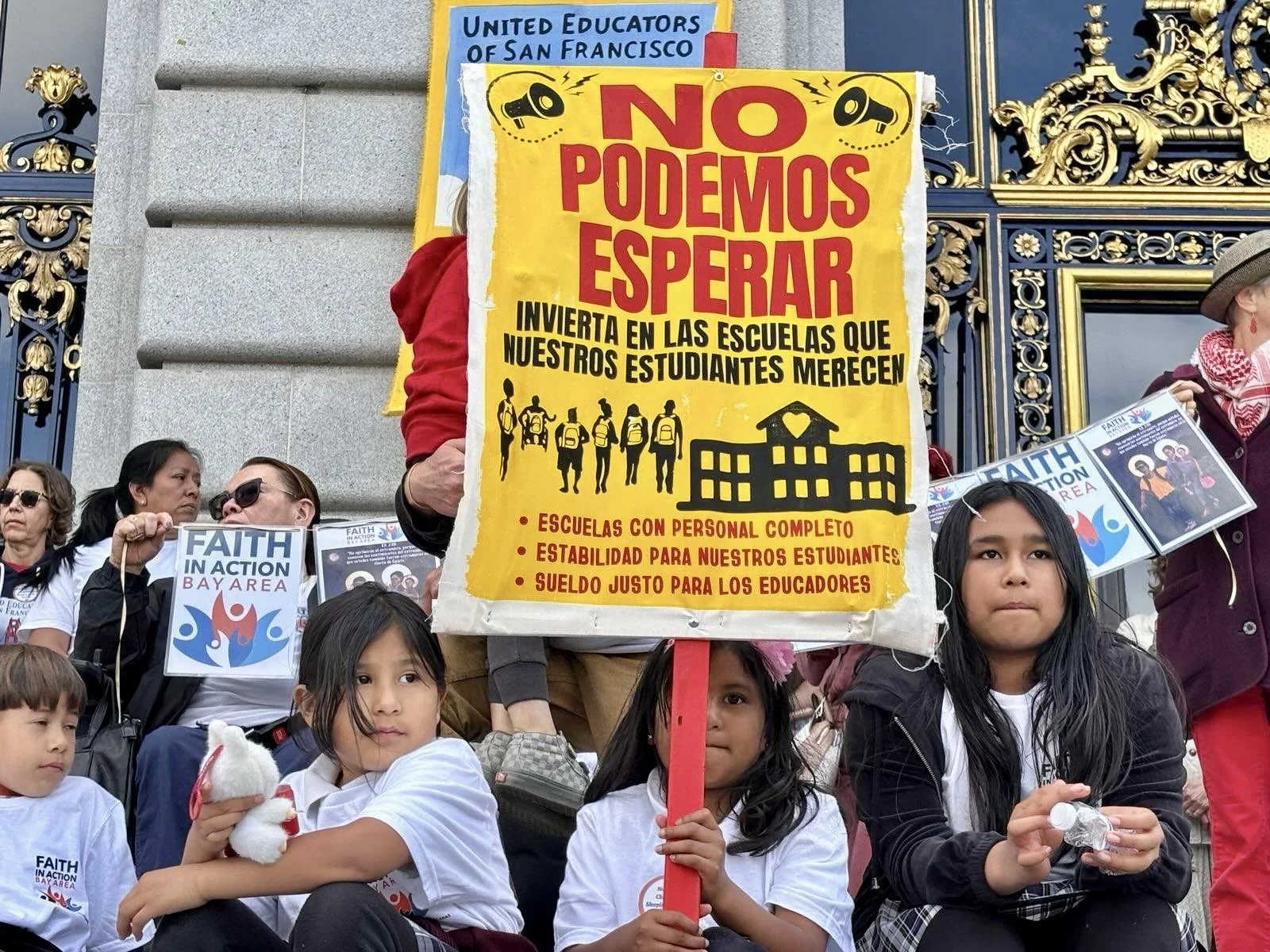NO MORE CHILDREN LIVING IN THE STREETS OF SAN FRANCISCO
TAKE ACTION!
MEDIA
about Samara’s story
WE ARE ALL SAMARA!
Samara is a 7-year-old girl with complex medical conditions which required multiple surgeries this summer. Samara and her family spent two years living in shelters and were told they did not qualify for any housing assistance under the City’s “coordinated entry” system where a computer allocates points to determine who deserves aid.
But after months of community organizing by homeless families, the City offered Samara’s family placement in affordable housing. The family recently moved in, and now Samara has a safe, dignified home!
Samara’s parents and other homeless families are thanking City leaders for the progress they have made and encouraging them to keep up the good work to finish the job of ending child homelessness in San Francisco. Earlier this year, the homeless families published a report, “Ending Child Homelessness in San Francisco: A Budget Proposal from Homeless Families,” outlining a proposal to end homelessness among children with $66 million in targeted investments. In July, the Mayor and Board of Supervisors agreed to invest $30 million in new funds for family homelessness and to end an experimental policy of evicting homeless families from shelters.
Maria and the other families are saying “WE ARE ALL SAMARA” to emphasize that although Samara’s situation was especially urgent, there are 3,000 homeless children in San Francisco, all of whom deserve safe, dignified homes—-and we can’t stop pushing our elected leaders to do the right thing until there are no more children living in the streets.
RESEARCH REPORT: We can end child homelessness in San Francisco!
Ending Child Homelessness in San Francisco: A Budget Proposal from Homeless Families (June 2025)
By Faith in Action Bay Area and the Coalition on Homelessness
FOR MORE BACKGROUND ON THE HOMELESS FAMILIES COMMITTEE OF FAITH IN ACTION BAY AREA,
PLEASE CLICK HERE










